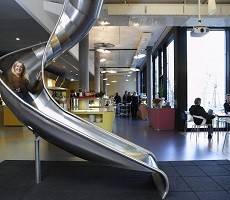May 25, 2016
Limited budgets greatest challenge to wellness programmes at work 0
 Sixty-five per cent of respondents in a new survey across Europe, the Middle East and Africa claim that stress and mental health are the health and wellness issues they are most concerned about. Fifty-three per cent say that employees’ physical health is the biggest issue, while unhealthy lifestyles are judged to be the biggest issue by 49 percent. However, according to the study from Aon, only 32 percent of employers have emotional or psychological health programmes in place and 69 percent say limited budgets are their biggest challenge. While 93 percent of employers see a correlation between health and employee performance, just 13 percent of respondents measure outcomes of health strategies. The findings pinpoint areas for improvement and make recommendations to increase health benefits take-up, improve measurement on the impact of health initiatives and to maximise the return on investment that firms make in employee health.
Sixty-five per cent of respondents in a new survey across Europe, the Middle East and Africa claim that stress and mental health are the health and wellness issues they are most concerned about. Fifty-three per cent say that employees’ physical health is the biggest issue, while unhealthy lifestyles are judged to be the biggest issue by 49 percent. However, according to the study from Aon, only 32 percent of employers have emotional or psychological health programmes in place and 69 percent say limited budgets are their biggest challenge. While 93 percent of employers see a correlation between health and employee performance, just 13 percent of respondents measure outcomes of health strategies. The findings pinpoint areas for improvement and make recommendations to increase health benefits take-up, improve measurement on the impact of health initiatives and to maximise the return on investment that firms make in employee health.




































May 25, 2016
An out of hours email ban and why we all need the ‘right to disconnect’ 0
by Adrian Lewis • Comment, Flexible working, Legal news, Work&Place, Workplace
(more…)